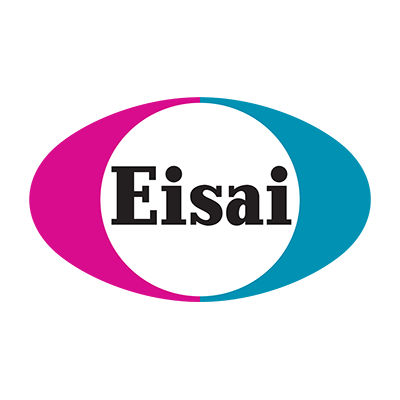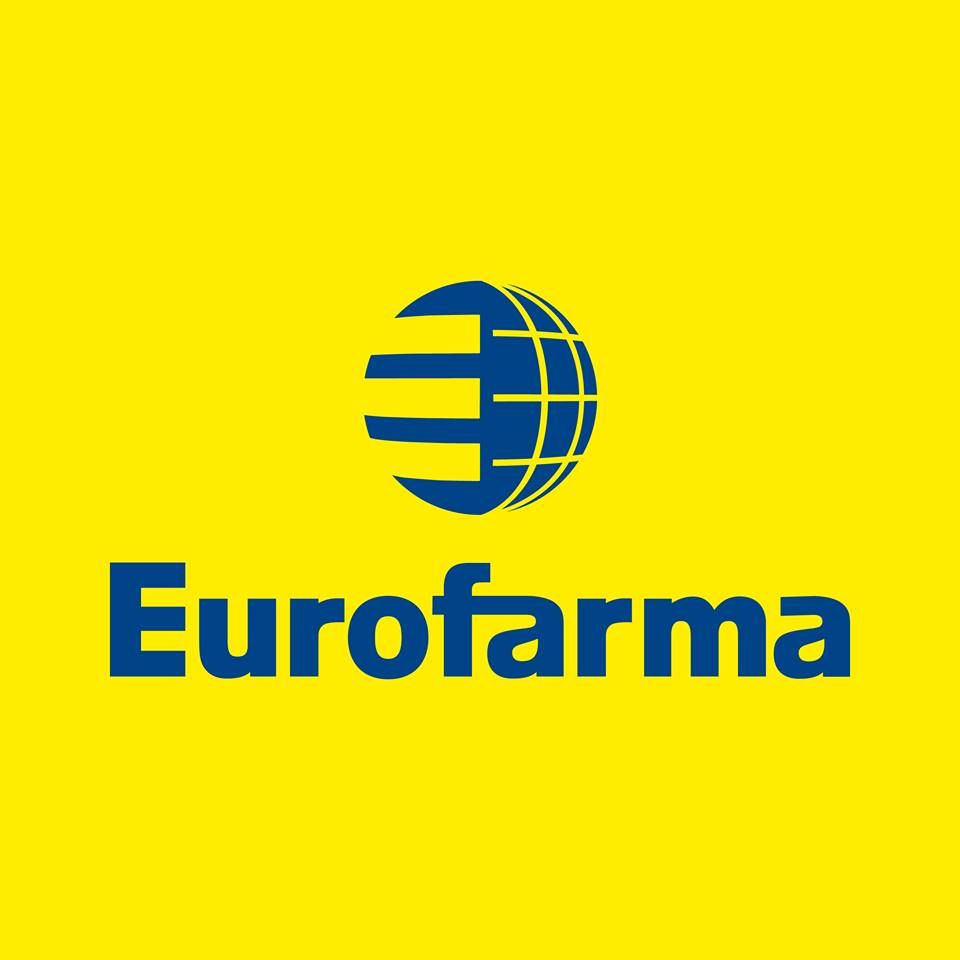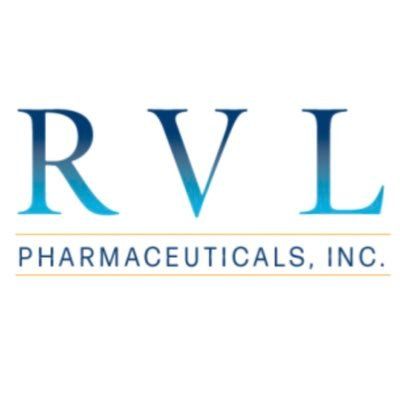预约演示
更新于:2025-05-07
Muscle Hypertonia
肌张力亢进
更新于:2025-05-07
基本信息
别名 HYPERTONIA、HYPERTONUS、High muscle tone + [56] |
简介 Abnormal increase in skeletal or smooth muscle tone. Skeletal muscle hypertonicity may be associated with PYRAMIDAL TRACT lesions or BASAL GANGLIA DISEASES. |
关联
97
项与 肌张力亢进 相关的药物靶点 |
作用机制 SNAP25 抑制剂 |
在研机构 |
原研机构 |
最高研发阶段批准上市 |
首次获批国家/地区 中国 |
首次获批日期2020-10-21 |
靶点 |
作用机制 SNAP25 抑制剂 |
在研适应症 |
非在研适应症- |
最高研发阶段批准上市 |
首次获批国家/地区 俄罗斯 |
首次获批日期2014-01-01 |
941
项与 肌张力亢进 相关的临床试验NCT05683574
Parallel-Group,Double-Blind,Double-Dummy,Superiority Study of Etoricoxib90mg/ Cyclobenzaprine15mg From Eurofarma Versus Etoricoxib90mg (Arcoxia®) and Cyclobenzaprine15mg (XL - Mitrul®) for Muscle Spasm After Third Molar Extraction in Brazil
Etoricoxib and cyclobenzaprine hydrochloride are active pharmaceutical ingredients (APIs) already registered in the country as mono-drugs. These products are widely used for the proposed indications, and their safety and efficacy profiles are known in daily clinical practice. Once the absence of a pharmacokinetic interaction between etoricoxib and cyclobenzaprine hydrochloride has been confirmed in relative bioavailability studies, this phase 3 study will be conducted for demonstrating the superiority of the new FDC over etoricoxib 90 mg (Arcoxia®) and cyclobenzaprine hydrochloride 15 mg (XL - Mitrul®) in the treatment of moderate to serious pain associated with muscle spasm. The purpose is to provide a new, effective, and safe therapeutic option to address these cases. Etoricoxib and cyclobenzaprine hydrochloride are active pharmaceutical ingredients (APIs) already registered in the country as mono-drugs. These products are widely used for the proposed indications, and their safety and efficacy profiles are known in daily clinical practice. Once the absence of a pharmacokinetic interaction between etoricoxib and cyclobenzaprine hydrochloride has been confirmed in relative bioavailability studies, this phase 3 study will be conducted for demonstrating the superiority of the new FDC over etoricoxib 90 mg (Arcoxia®) and cyclobenzaprine hydrochloride 15 mg (XL - Mitrul®) in the treatment of moderate to serious pain associated with muscle spasm. The purpose is to provide a new, effective, and safe therapeutic option to address these cases.
开始日期2026-05-30 |
申办/合作机构 |
NCT05179577
A Randomized, Double-Blind, Placebo-Controlled Parallel Group Study to Investigate the Safety and Efficacy of Arbaclofen Extended-Release Tablets for the Treatment of Spasticity in Patients With Multiple Sclerosis (Study OS440-3006)
This is a multicenter, randomized, double-blind, placebo-controlled, parallel-group study to evaluate the safety and efficacy of oral arbaclofen ER tablets in MS patients with spasticity. Arbaclofen ER will be compared with placebo.
开始日期2026-01-01 |
申办/合作机构 |
NCT06848660
Rigid Collar or No Collar for Non-surgical Treatment of Stable Cervical Spine Fractures: a Protocol for a Randomized Register Trial
Background and Purpose:
Neck fractures affect over 1,100 people in Sweden each year, with the majority being frail older adults. Most neck fractures are stable and therefore treated without surgery, typically using a rigid collar. However, the collar only limits neck movement by 40-50% and can cause pressure sores, as well as difficulties with swallowing and breathing. Because of these issues, the latest Swedish national guidelines for pre-hospital and hospital spinal motion restriction have replaced the rigid collar with other methods. This raises the question of whether the rigid collar still has a role in the modern treatment of stable neck fractures.
The aim of this study is to determine whether treatment with or without a rigid collar leads to equally good healing outcomes.
Method:
All adults diagnosed with a stable neck fracture deemed suitable for non-surgical treatment will be included in the study at the time of registration in the Swedish Fracture Register (SFR). Participating hospitals will be randomly assigned (1:1) to either use no collar at all or a rigid collar for 12 weeks. After an initial period of 1.5 years, the hospitals will switch to the opposite treatment group. A total of 616 participants are expected to be included within 3 years.
At the one-year follow-up, investigators will evaluate how many participants in each treatment group that required a switch to surgical stabilization due to treatment failure. Secondary outcomes will include quality of life, neck pain, and the need for assistive devices in relation to disability and complications in both groups.
Summary:
Non-surgical treatment rarely fails, and the need to switch from non-surgical treatment to surgery is very uncommon. The rigid collar is often prescribed out of habit, without much consideration for its potential negative effects. If this study shows that the rigid collar is unnecessary for treating stable neck fractures, frail older adults-who often struggle with collar-related discomfort, malnutrition, and pressure sores-could avoid unnecessary suffering.
Neck fractures affect over 1,100 people in Sweden each year, with the majority being frail older adults. Most neck fractures are stable and therefore treated without surgery, typically using a rigid collar. However, the collar only limits neck movement by 40-50% and can cause pressure sores, as well as difficulties with swallowing and breathing. Because of these issues, the latest Swedish national guidelines for pre-hospital and hospital spinal motion restriction have replaced the rigid collar with other methods. This raises the question of whether the rigid collar still has a role in the modern treatment of stable neck fractures.
The aim of this study is to determine whether treatment with or without a rigid collar leads to equally good healing outcomes.
Method:
All adults diagnosed with a stable neck fracture deemed suitable for non-surgical treatment will be included in the study at the time of registration in the Swedish Fracture Register (SFR). Participating hospitals will be randomly assigned (1:1) to either use no collar at all or a rigid collar for 12 weeks. After an initial period of 1.5 years, the hospitals will switch to the opposite treatment group. A total of 616 participants are expected to be included within 3 years.
At the one-year follow-up, investigators will evaluate how many participants in each treatment group that required a switch to surgical stabilization due to treatment failure. Secondary outcomes will include quality of life, neck pain, and the need for assistive devices in relation to disability and complications in both groups.
Summary:
Non-surgical treatment rarely fails, and the need to switch from non-surgical treatment to surgery is very uncommon. The rigid collar is often prescribed out of habit, without much consideration for its potential negative effects. If this study shows that the rigid collar is unnecessary for treating stable neck fractures, frail older adults-who often struggle with collar-related discomfort, malnutrition, and pressure sores-could avoid unnecessary suffering.
开始日期2025-09-01 |
申办/合作机构 |
100 项与 肌张力亢进 相关的临床结果
登录后查看更多信息
100 项与 肌张力亢进 相关的转化医学
登录后查看更多信息
0 项与 肌张力亢进 相关的专利(医药)
登录后查看更多信息
27,207
项与 肌张力亢进 相关的文献(医药)2026-01-01·Neural Regeneration Research
Hidden face of Parkinson’s disease: Is it a new autoimmune disease?
Article
作者: Kim, Seon-Hee ; Jo, Min Gi ; Yun, Seung Pil
2025-12-31·Hematology
Hematopoietic stem cell transplantation for purine nucleoside phosphorylase deficiency with two novel mutations: a case report and review of literature
Article
作者: Liu, Minyuan ; Li, Jie ; Xiao, Peifang ; Zhang, Senlin ; Hu, Shaoyan ; Ji, Qi ; Qian, Jing ; Li, Bohan
2025-12-01·Current Pain and Headache Reports
Efficacy, Indications, and Safety of Intrathecal Baclofen Pump: A Narrative Review
Review
作者: Gibbs, Caroline ; Wandler, Alex M ; Mott, Karlee R ; Kaye, Alan D ; Cheon, Se Yun ; Lin, Junyu ; Ahmadzadeh, Shahab ; Munir, Syeda T ; Shekoohi, Sahar ; Bembenick, Kristin Nicole ; Myers, Sarah H ; Siddaiah, Harish ; Roque, Morgan H
635
项与 肌张力亢进 相关的新闻(医药)2025-04-29
◆ ◆ ◆ ◆Paul's Insight2025年4月21日-4月27日◆ ◆ ◆ ◆过去一周(4月21日至4月27日),全球药事监管和行业机构齐齐发声,犹如一场精彩的药品政策与科技盛宴。从FDA的合成色素退市行动,到EMA的罕见病新疗法推荐;从EDQM对生物制品检测标准的升级,到MHRA多款创新疗法的批准;再到行业协会PDA和ISPE在指南与实践层面的多重发力,这一连串新闻不仅彰显了各大机构的监管力度,更映射出制药行业在创新、合规与可持续性间的不断平衡。美国FDA从食药安全到创新药物的“双轨”发力1. 合成食用色素“退场”行动4月22日,美国FDA宣布,计划逐步淘汰美国食品供应中的合成色素(Petroleum-Based Synthetic Dyes),为儿童健康撑起防护伞。FDA表示,这一举措,是“让美国再次健康”(Make America Healthy Again)计划的重要里程碑。此前,1月15日赤藓红(FD&C Red No. 3)禁用已拉开了帷幕,后续这一更广泛的色素退市,将持续推动产业寻求天然、低风险的替代方案。图:赤藓红禁用后,FDA再推新规,八大合成食用色素将退场https://www.fda.gov/news-events/press-announcements/hhs-fda-phase-out-petroleum-based-synthetic-dyes-nations-food-supply2. 药品安全敲响警钟:外用非那雄胺安全红线4月22日,FDA对市场上未经批准的外用非那雄胺配药制剂发出警示,提醒医疗机构、药房及消费者:目前无任何局部非那雄胺产品拥有FDA批准的标签和安全、有效性验证,配制药剂可能隐藏严重风险,包括与米诺地尔等混合制剂的混用场景。FDA直指部分处方药店和远程医疗平台的药品安全风险行为,呼吁行业加强自律与审查。图:就非那雄胺外用安全问题,FDA发布脱发常用药警示https://www.fda.gov/drugs/human-drug-compounding/fda-alerts-health-care-providers-compounders-and-consumers-potential-risks-associated-compounded3. 中国创新药的海外“登台”——派安普利单抗获批4月24日,FDA官网放出重磅消息:康方生物自主研发的PD1单抗派安普利单抗(Penpulimabkcqx)获批,用于复发或转移性非角化型鼻咽癌(NPC)治疗。该产品采用IgG1亚型Fc段改造设计,依托突破性疗法认定、孤儿药资格和快速通道三重加速,联袂正大天晴药业集团布局后续商业化。此举不仅为全球鼻咽癌患者带来曙光,也标志着中国创新药在国际舞台上稳步迈进。(点击此处查看相关阅读)图:中国制药行业又一里程碑,派安普利单抗获FDA批准进入美国市场https://www.fda.gov/drugs/resources-information-approved-drugs/fda-approves-penpulimab-kcqx-non-keratinizing-nasopharyngeal-carcinoma美国PDA发布新闻季刊4月24日,美国注射剂协会(PDA)发布新闻季刊,总结其在过去一个季度的工作,要点如下。 图:PDA发布新闻季刊https://www.pda.org/pda-letter-portal/home/full-article/community-news-quarterly-april-20251)2024年PDA出版奖揭晓PDA颁发奖项给Novartis&Ogilvy团队,表彰其用于无菌性检测的创新方法,该论文名为《一种利用固相流式细胞术进行细胞制备、培养基和缓冲液的快速无菌方法》。年度PDA Letter文章奖项授予武田制药的《理解日本品质》。2)区域分会动态:德国、奥地利和瑞士分会(DACH)亮点纷呈DACH分会“目视检测与颗粒挑战”网络研讨会吸引400余名专家,聚焦AI时代的风险基础方法与质量设计。PDA表示,此次网络研讨会超出预期,如此高的参与度凸显了业界对目视检测和颗粒物相关挑战的关注,同时也强化了DACH分会促进制药行业知识交流和最佳实践的使命。欧盟EMA欧盟罕见病与适应症扩展双管齐下1. DMD新疗法——组蛋白去乙酰化酶(HDAC)抑制剂获“有条件上市许可”4月25日,欧洲药品管理局(EMA)发布杜氏肌营养不良症(DMD)创新药物Duvyzat(givinostat)“有条件上市许可”建议。该组蛋白去乙酰化酶(HDAC)抑制剂在120例6岁以上患者的18个月研究中显著延缓台阶攀爬时间,虽次要终点未全部显著,但整体数据朝积极方向发展。获得“有条件上市许可”,这是欧盟的监管机制之一,旨在促进早期上市药物,以满足未满足医疗需求的。EMA要求申请人后续进行一项随机、安慰剂对照研究,并进行长期随访将补足盲点。上市许可人为Italfarmaco S.p.A.,是是一家总部位于意大利米兰的制药跨国公司。图:杜氏肌营养不良症(DMD)创新药物获“有条件上市许可”https://www.ema.europa.eu/en/news/new-treatment-against-duchenne-muscular-dystrophy2. 甲状腺眼病首创疗法Tepezza获积极审评意见4月25日,EMA对甲状腺眼病(TED)首款靶向IGF1受体的单抗Teprotumumab(Tepezza)给出积极评审意见。三项RCT临床显示活动期患者24周内眼球突出度平均减少2.0–2.3mm,临床活动评分大幅改善;慢性期亦有约1.5mm降低。基于肌肉痉挛、脱发等可管理风险,EMA将附加风险最小化措施并转交欧委会审批。申请人为Amgen Europe B.V.,是全球领先的生物技术公司安进在欧洲的子公司。图:甲状腺眼病首创疗法Tepezza获积极审评意见https://www.ema.europa.eu/en/news/first-treatment-against-severe-thyroid-eye-disease3. CHMP会议要点:新药、扩展、再审与撤回4月22–25日的EMA人药委员会(CHMP)会议,推荐16款新药(包含Vertex囊性纤维化三联疗法、差异化适应症的多款孤用药及九款生物类似药),推动10项适应症扩展,如武田制药的Adcetris多淋巴瘤适应等;同时,礼来的阿尔茨海默药物Kisunla申请再审,Biohaven和辉瑞的两款产品适应失利撤回。整体来看,EMA通过CMA平衡未满足需求与证据要求,也显示出对成熟产品生命周期管理策略的开放态度。图:2025年4月22日至25日人药委员会( CHMP )会议要点https://www.ema.europa.eu/en/news/meeting-highlights-committee-medicinal-products-human-use-chmp-22-25-april-2025欧洲EDQM高通量测序入典,提升生物制品安全4月23日,EDQM欧洲药典委员会(EPC)正式采纳通则“2.6.41病毒外源性因子检测的高通量测序(HTS)”,自2026年4月1日起生效。新章节涵盖非靶向与靶向HTS方法学、基因组/转录组数据分析和验证指南,驱动与ICH Q5A(R2)修订及WHO国际参考组协同,助力生物制品从传统动物实验迈向更高灵敏度的分子检测。图:高通量测序入欧洲药典https://www.edqm.eu/en/-/epc-adopts-cutting-edge-hts-chapter-to-enhance-viral-contaminant-detection-in-biological-products英国MHRA创新疗法齐发1. 4月拜耳新药Acoramidis获批,用于心肌病4月25日,MHRA批准拜耳制药的Acoramidis(Beyonttra),用于治疗因变异型或野生型转甲状腺素蛋白淀粉样变性(ATTR-CM)引起的心肌病(心肌损伤)成年患者。,632例国际多中心研究显示30个月心血管住院率和死亡率显著降低,6分钟步行距离改善。口服每日两次,通过IRP机制加速审评。图:拜耳新药Acoramidis获批,用于心肌病https://www.gov.uk/government/news/acoramidis-approved-to-treat-wild-type-or-variant-transthyretin-amyloidosis-in-adults-with-cardiomyopathy2. 白血病CAR-T疗法Obecabtagene autoleucel获有条件上市批准4月25日,obecabtagene autoleucel (Aucatzyl) 这一CART疗法获条件上市许可,用于治疗复发或难治性B 细胞前体急性淋巴细胞白血病 (ALL) 的成年患者。FELIX研究153例数据显示12个月总生存率81%、完全缓解55%,后续需提供更多数据满足全面上市要求。上市许可人为Autolus Therapeutics,是一家总部位于英国的生物制药公司,该公司于2014 年从伦敦大学学院(UCL)分拆成立。图:白血病CAR T疗法Obecabtagene autoleucel获有条件上市批准https://www.gov.uk/government/news/obecabtagene-autoleucel-conditionally-approved-to-treat-adults-with-relapsed-or-refractory-b-cell-precursor-acute-lymphoblastic-leukaemia3. 百健新药在英获批4月23日,MHRA批准了 omaveloxolone(Skyclarys),这是英国首个针对 16 岁及以上患者的治疗药物,用于治疗一种名为弗里德赖希共济失调的罕见神经退行性运动障碍。弗里德赖希共济失调是最常见的遗传性共济失调(由遗传基因引起)。据估计,每5万人中至少有1人患有此病。弗里德赖希共济失调的症状包括平衡和运动障碍,并会随着时间的推移逐渐恶化。该药物为口服胶囊剂。上市许可人为Biogen Netherlands B.V.,为全球领先的生物技术公司 Biogen Inc.(百健公司)在荷兰的全资子公司。图:百健新药在英获批https://www.gov.uk/government/news/mhra-approves-first-uk-treatment-for-friedreichs-ataxia-omaveloxolone4. 辉瑞血友病药物获批4月22日,MHRA批准辉瑞药物Marstacimab(Hympavzi),用于预防或减少12岁及以上、体重至少35公斤的血友病A和B患者的出血。该药物是同类药物中第一个通过针对血液凝固过程中的蛋白质来发挥作用的药物。Marstacimab每周一次皮下注射,使用预充式注射器或注射笔。患者或护理人员经过适当培训后即可自行注射药物。图:辉瑞血友病药物获批https://www.gov.uk/government/news/marstacimab-approved-to-treat-patients-aged-12-years-and-above-weighing-at-least-35-kg-with-haemophilia-a-or-b国际ISPE发布数字化验证良好实践指南国际制药工程协会(ISPE)发布了《数字化验证良好实践指南》(Good Practice Guide: Digital Validation),为制药企业提供从传统验证向数字化框架过渡提供了指导。这本90页的指导文件,旨在帮助制药企业采用数字化验证工具(Digital Validation Tools, DVT),提升数据可靠性、运营效率和监管合规性。该指南由全球专家团队开发,其核心成员来自于武田制药、葛兰素史克等全球药企和行业咨询公司。ISPE表示,指南结合真实案例和结构化方法,适用于从初创到优化现有系统的各类企业。(点击此处查看相关阅读)图:ISPE最新发布《数字化验证良好实践指南》https://ispe.org/publications/guidance-documents/good-practice-guide-digital-validation结 语回望过去一周,FDA、EMA、EDQM、MHRA、PDA和ISPE等监管与行业机构的多项决策、指南与更新,彰显监管严谨,又鼓励技术革新。从食品安全到精准疗法,从分子检测到数字化治理,昭示出全球制药行业正朝着更健康、更高效、更可持续的未来协奏。END声明:本文仅代表作者个人观点,不代表任何组织及本公众号立场,如有不当之处,敬请指正。如需转载,请注明作者及来源:蒲公英Biopharma。活动推荐5月6日 | 线上 | 新法规和应用场景下的全球包材注册策略和最佳实践5月8日 | 线上 | 双维度解锁无菌药品生产污染防控策略
孤儿药突破性疗法上市批准医药出海申请上市
2025-04-27
摘要:新生儿由于免疫系统发育不完善,对传染病的抵抗力较弱,全球都急需保护这一脆弱群体。由于针对新生儿开发有效疫苗存在诸多挑战,目前只有乙肝和卡介苗在新生儿出生后的前 28 天接种,且主要针对高危群体。通过孕妇接种疫苗,借助母体抗体来保护新生儿是一种可行策略。本文将探讨目前孕期及新生儿接种疫苗的情况、正在研发的疫苗,以及疫苗推广过程中面临的挑战 。总体而言,尽管在疫苗研发和应用方面取得了一些进展,但仍需克服诸多困难,以更好地保护新生儿免受传染病的侵害。一、新生儿为何易受传染病威胁新生儿的免疫系统还在发育中,免疫记忆有限,这使得他们极易受到传染病的威胁 。2015 年,全球约有 61 万新生儿死于传染病,在低收入和中等收入国家,这一问题更为严重 。在高收入国家,虽然传染病导致新生儿死亡的情况相对较少,但仍会造成新生儿住院,给家庭和医疗系统带来沉重负担,还可能对婴儿的长期健康产生影响 。因此,保护新生儿免受传染病侵害是全球公共卫生领域的重要任务 。二、孕期接种疫苗的免疫学原理新生儿免疫特点与疫苗接种挑战:新生儿的免疫系统功能尚未完全成熟,这使得他们对一些疫苗的免疫反应不如年长儿童和成年人有效 。不过,这种 “不成熟” 也可看作是一种保护机制,能避免新生儿对无害的环境抗原和共生生物产生过度免疫反应 。但这也给新生儿疫苗接种带来了困难,例如一些疫苗在新生儿体内无法产生足够的保护效果 。母体抗体的作用:母体抗体可以通过胎盘传递给胎儿,并分泌到母乳中,为新生儿提供一定的保护 。因此,孕期接种疫苗,让母体产生抗体并传递给新生儿,是一种保护新生儿的策略 。不过,活疫苗由于存在减毒病原体感染胎盘和胎儿的风险,在孕期通常是禁忌使用的 。比如卡介苗这种活疫苗,就不适合在孕期接种,而更适合给新生儿接种 。孕期接种疫苗的免疫反应:孕期虽然不是免疫抑制状态,但全身免疫反应会发生一些微妙变化 。以破伤风、白喉、无细胞百日咳(Tdap)疫苗为例,不同研究对孕妇接种后的抗体反应存在不同结论,有的研究发现孕妇和非孕妇接种后的抗体滴度无差异,而有的研究则表明孕妇接种后的反应低于非孕期 。对于流感和新冠疫苗,孕妇接种后的抗体滴度与非孕期相似,但系统血清学研究也发现了一些细微差异 。总体来说,孕期接种疫苗产生的抗体反应足以提供保护,且由于抗体滴度会随时间下降,为了最大程度保护新生儿,孕期接种疫苗仍是较好的选择 。抗体的胎盘转运:在五类抗体中,只有 IgG 能够通过胎盘,这一过程主要由新生儿 Fc 受体(FcRn)介导(原文 Fig. 1,展示 IgG 经胎盘转运的过程,包括从母体血液循环,经滋养层细胞、绒毛结缔组织,最终进入胎儿血液循环的具体步骤)。IgG1 的转运效率最高,其次是 IgG4、IgG2 和 IgG3 。胎盘对 IgG 的转运在孕早期较少,孕中期逐渐增加,孕晚期转运速率显著提高,足月时胎儿的 IgG 浓度通常会超过母体 。因此,在孕 26 - 34 周接种疫苗,能使足月出生婴儿脐带血中的抗原特异性 IgG 达到最大化 。不过,如果首要目标是保护孕妇和胎儿免受孕期疾病的侵害,可能需要更早接种疫苗,这就需要权衡对婴儿保护的影响 。另外,母体抗体在婴儿体内的半衰期有限,会逐渐减少,这也影响了婴儿的疫苗接种计划 。母乳中的抗体:孕期接种疫苗产生的母体 IgA 会转移到母乳中,进而进入婴儿肠道 。有证据表明,孕期接种流感疫苗可能通过这种方式为新生儿提供额外保护 。此外,接种疫苗的父母和其他照顾者感染传染病的可能性降低,也能减少婴儿被感染的风险(原文 Fig. 2,展示孕期接种疫苗保护新生儿的多种机制,包括对孕妇疾病的预防、母体 IgG 经胎盘的保护、母乳中 IgA 的作用以及照顾者接种疫苗的间接保护)。三、现有的疫苗接种计划破伤风疫苗:破伤风是由破伤风杆菌的孢子进入开放性伤口引起的,在资源匮乏地区,新生儿因接生时使用非无菌器械切断脐带,感染破伤风的风险很高 。新生儿破伤风通常在出生后 3 - 28 天发病,患病婴儿会出现吸吮困难和肌肉痉挛等症状,若不进行治疗,几乎必死无疑,即便在医院接受治疗,仍有 10% - 60% 的感染新生儿会死亡 。自 20 世纪 50 年代起,破伤风疫苗开始广泛应用 。研究表明,孕妇接种 2 - 3 剂破伤风疫苗,可使新生儿破伤风死亡率降低 98% 。在全球努力下,2018 年新生儿破伤风死亡人数相较于 1988 年大幅减少了 97%,这主要归功于免疫接种的推广 。百日咳疫苗:百日咳是由百日咳杆菌引起的高度传染性呼吸道疾病,其特征为阵发性咳嗽并伴有吸气性鸡鸣声 。在 20 世纪 40 年代,百日咳导致的婴儿死亡人数比麻疹、腮腺炎、风疹、猩红热、白喉、脊髓灰质炎和脑膜炎的总和还多 。如今,全球每年仍有 85,900 名婴儿死于百日咳 。20 世纪 10 年代和 20 年代,全细胞百日咳疫苗和无细胞百日咳疫苗相继问世 。美国和英国分别在 2010 年和 2012 年开始推荐孕妇接种百日咳疫苗 。在英国,孕妇接种百日咳疫苗后,3 个月以下婴儿的百日咳病例减少了 78% 。关于孕期接种疫苗的时间和类型的建议也在不断调整,例如英国最初在孕 28 - 38 周提供百日咳疫苗接种,2016 年后将接种时间延长至 16 - 32 周,以更好地保护早产婴儿 。流感和新冠疫苗:怀孕会增加孕妇患病毒性肺炎的风险,因此接种流感和新冠疫苗可保护孕妇和胎儿 。同时,这两种疫苗对新生儿也有保护作用 。研究显示,孕期接种流感疫苗可使 2 个月以下婴儿实验室确诊流感病毒感染的风险降低 56%,6 个月以下婴儿降低 35% ;孕期接种新冠疫苗,对预防婴儿感染 SARS-CoV-2 的有效率在 21% - 84% 之间,预防婴儿因 COVID-19 住院的有效率在 32% - 95% 之间 。目前,流感疫苗通常作为季节性疫苗在孕期接种,新冠疫苗在英国也曾作为季节性疫苗接种,而美国则在有针对新变种的疫苗时进行接种 。为了更好地保护新生儿,一些国家开始考虑调整接种时间,如美国建议在孕晚期的夏季接种流感疫苗,澳大利亚也批准了专门用于保护新生儿的孕期流感疫苗 (原文 Fig. 3,展示英国、美国和印度孕期接种疫苗的时间表,直观呈现不同国家不同疫苗的接种时间安排)。乙肝疫苗:乙肝病毒(HBV)可导致急性或慢性感染,乙肝病毒抗原呈阳性的母亲所生的婴儿,有 85% - 90% 会发展为慢性感染,这会增加他们患肝硬化、肝衰竭或肝癌的风险 。由于围产期传播是乙肝病毒在全球传播的主要途径之一,预防这种传播对于实现世界卫生组织到 2030 年消除乙肝的目标至关重要 。目前的证据表明,母体抗乙肝病毒抗体经胎盘转移对新生儿的保护作用有限 。而给新生儿接种乙肝疫苗,可使婴儿感染风险降低 73% ;若同时接种乙肝疫苗和乙肝免疫球蛋白,感染风险可降低 92% 。世界卫生组织建议所有婴儿在出生时接种乙肝疫苗,但许多欧洲国家,如英国,仅对高危婴儿在出生时接种,大多数婴儿则在后续的婴儿接种计划中接种含乙肝成分的多价疫苗 。结核病和口服脊髓灰质炎疫苗(在流行地区):结核病和脊髓灰质炎在流行地区是导致婴儿和儿童死亡的主要原因 。世界卫生组织建议在阿富汗和巴基斯坦等国家,婴儿出生后尽快接种口服脊髓灰质炎疫苗;在撒哈拉以南非洲、南亚和东南亚的大部分地区,婴儿需接种卡介苗预防结核病 。卡介苗是目前唯一可用的结核病疫苗,但由于它是活减毒疫苗,孕期接种存在风险,因此无法通过孕期接种来预防新生儿感染结核病 。不过,婴儿接种卡介苗对预防 5 岁以下儿童因结核病死亡的有效率为 80% 。此外,在脊髓灰质炎流行地区,除了常规的婴儿接种计划外,还建议在婴儿出生时额外接种一剂口服脊髓灰质炎疫苗,以增强后续完成三剂婴儿接种计划后的血清转化效果,因为仅靠三剂接种计划在病毒流行地区不足以有效预防脊髓灰质炎 。但由于卡介苗和口服脊髓灰质炎疫苗都是活减毒疫苗,对免疫缺陷婴儿存在潜在致病风险。在英国,卡介苗仅推荐给高危婴儿接种,并且在开展严重联合免疫缺陷筛查的地区,会延迟接种卡介苗直至筛查结果出来 。随着全球消灭脊髓灰质炎工作的推进,口服脊髓灰质炎疫苗将逐步被淘汰 。四、预防呼吸道合胞病毒的新举措呼吸道合胞病毒(RSV)的危害:RSV 是导致儿童急性下呼吸道感染(LRTI)的主要原因之一。2019 年,全球估计有 3300 万例 RSV 相关的 LRTI 病例,其中 95% 的病例和 97% 的 10 万例死亡发生在低收入和中等收入国家 。在高收入国家,RSV 也是导致婴儿住院的主要原因,给医疗资源带来了巨大压力 。RSV 疫苗在孕期的应用:一种 RSV 预融合 F 蛋白疫苗(Abrysvo)已在多个国家获批用于孕期接种,以预防新生儿感染 RSV 。在 III 期试验中,该疫苗对 90 天以下婴儿的严重 RSV - LRTI 的预防效力为 81.8%,对 180 天以下婴儿的预防效力为 69.4% 。美国和阿根廷从 2023 年开始将其作为季节性疫苗接种,英国从 2024 年开始全年提供接种 。不过,在该疫苗的 III 期试验中,南非和巴西出现了早产率的非统计学显著失衡,但高收入国家未出现此情况 。为降低潜在的早产风险,美国和阿根廷选择在孕 32 周后提供接种,英国则在孕 28 周后提供接种 。这意味着极早产婴儿可能无法从母体获得通过胎盘转移的 RSV 特异性 IgG,但仍可能从母乳中的抗体以及阻断 RSV 传播中获益 。此外,Moderna 的 mRNA - 1345 疫苗目前正在进行全球 III 期临床试验 。新生儿被动免疫预防 RSV:自 20 世纪 90 年代起,高收入国家就建议在 RSV 流行季节,每月给高危婴儿注射帕利珠单抗(一种人源化抗 RSV F 蛋白单克隆抗体) 。近年来,长效抗 RSV F 蛋白单克隆抗体尼塞韦单抗(nirsevimab,商品名 Beyfortus)的出现具有突破性意义,它只需单次肌肉注射,半衰期长达 79 天 。在 III 期研究中,尼塞韦单抗对健康足月儿和晚期早产儿(大于 35 周 gestation)预防 RSV - LRTI 的效力为 74.5%,对早产儿(29 至小于 35 周 gestation)的效力为 70.1% 。在多个国家实施普遍接种计划后,尼塞韦单抗显示出了良好的覆盖率和有效性 。例如,西班牙在 2023 年 9 月实施普遍接种计划后,三个地区的覆盖率在 78.7% - 98.6% 之间,预防 RSV - LRTI 住院的效力为 70.2% 。不过,该策略的成本限制了其在全球的可及性 。目前,另一种结合 RSV F 蛋白不同位点的单克隆抗体 clesrovimab 正在进行 III 期研究,有望改善全球供应情况并降低成本 (原文 Table 2,对比 RSV 孕期接种疫苗和婴儿单克隆抗体在有效性、安全性、接种时间等方面的差异,帮助读者更清晰地了解两种预防策略)。五、预防 B 族链球菌感染的未来计划B 族链球菌(GBS)的威胁:GBS 是全球新生儿和婴儿败血症及脑膜炎的主要病因 。全球范围内,估计 GBS 每年导致 46,200 例死产、518,100 例早产和 91,900 例婴儿死亡 。目前,分娩时使用抗生素预防是减少早发型 GBS 疾病(出生后 7 天内发病)的唯一策略,但对晚发型疾病(7 - 90 天发病)、死产和早产没有效果 。GBS 疫苗的研发进展:疫苗研发最初聚焦于荚膜多糖疫苗,一种覆盖主要致病血清型的六价多糖 CRM197 结合疫苗在 I/II 期研究中显示出可接受的安全性和良好的免疫反应,并且能通过胎盘传递抗体,降低婴儿侵袭性 GBS 疾病的风险 ,目前正在计划开展 III 期关键全球研究 。另一种研发方向是基于 GBS 表面蛋白的融合蛋白疫苗,Minervax 开发的基于 Alpha-like 蛋白的疫苗已完成 II 期全球研究,并且在南非和乌干达针对 HIV 阳性和阴性孕妇的研究也已完成,后续也计划开展 III 期研究 。不过,将这些疫苗推进到 III 期临床试验并最终获批面临诸多困难,其中最大的障碍是临床疗效研究需要纳入大量的母亲和婴儿,这使得此类研究在商业上难以实现 。此外,基于血清学保护相关性的免疫终点需要针对每种 GBS 血清型进行定义,并且标准化检测方法和参考血清至关重要 。在低收入国家,虽然 GBS 疫苗的潜在益处最大,但当地产前护理水平参差不齐,也给开展可靠的临床试验带来了挑战 。尽管如此,近年来在 GBS 疫苗研发方面已经取得了显著进展和投资,为全球对抗 GBS 感染带来了希望 。六、未来展望面临的挑战:开发用于孕期和新生儿的新疫苗面临诸多复杂挑战,包括额外的后勤保障难题、伦理问题,以及这些群体在历史上常被忽视的情况 。即使是已经成熟的疫苗接种计划,在实施过程中也面临障碍 。在低收入地区,获取疫苗的渠道和物流是主要挑战,需要财政、基础设施和组织方面的支持来确保公平的疫苗可及性 。在高收入地区,疫苗供应也并非毫无问题,例如法国和美国都曾出现过尼塞韦单抗供应不足的情况 。此外,疫苗的接受度也是一个重要问题,孕期推荐疫苗的接种率较低,如在 COVID - 19 大流行期间,产前百日咳和流感疫苗的接种率均有所下降,且至今尚未恢复 。应对措施与建议:为了提高疫苗的接受度,卫生部门、科学团体和医疗专业人员需要共同协作,确保产前医疗指导中充分涵盖疫苗接种的相关信息,并充分解决特定群体的担忧 。随着更多疫苗被纳入接种计划,考虑疫苗的联合接种变得越来越重要,需要研究不同疫苗同时接种的安全性和有效性 。同时,即使某种传染病的疫苗已经获批,继续开展其他疫苗的试验对于确保全球疫苗供应的稳定性和弹性也至关重要 。未来研究方向:未来的研究还应关注其他可能通过孕期接种疫苗预防的感染性疾病,如巨细胞病毒、寨卡病毒、拉沙病毒和戊型肝炎病毒等 。此外,开发针对新生儿的更安全、更有效的结核病疫苗也是当务之急 。针对这些疾病的疫苗研发虽然面临诸多挑战,但一旦成功,将对全球公共卫生产生重大影响 。识别微信二维码,添加生物制品圈小编,符合条件者即可加入生物制品微信群!请注明:姓名+研究方向!版权声明本公众号所有转载文章系出于传递更多信息之目的,且明确注明来源和作者,不希望被转载的媒体或个人可与我们联系(cbplib@163.com),我们将立即进行删除处理。所有文章仅代表作者观不本站。
疫苗
2025-04-21
2025年4月,一则来自全球临床试验注册平台ClinicalTrials网站的信息显示,港股上市的Biotech公司来凯医药更新了其自研管线LAE102针对肥胖症在美国的一项I期临床试验(NCT06908707)的相关信息。一个引人注意的变化是:修订后的临床方案,出现了合作伙伴礼来的名字。同时,来自ClinicalTrials网站的信息也显示,该研究计划于2025年4月底启动临床入组,预计在2025年8月结束。LAE102是一款来凯医药自主研发的靶向激活素II型受体A(ActRIIA)的单克隆抗体,也是全球范围内除了礼来的Bimagrumab之外,为数不多的已经进入临床试验阶段的靶向ActRII的在研管线。目前来凯LAE102在中国的I期临床试验正全速推进:继单剂量递增部分(SAD研究)之后,2025年3月多剂量递增研究(MAD研究)已完成首例受试者访视。根据医药投资部落的数据库显示,去年11月,来凯医药与礼来公司签署了临床合作协议,礼来将负责在美国执行LAE102的一项I期临床试验并承担相关费用,而来凯医药保留了LAE102的全球权益。此次来凯医药向FDA提交的临床方案修订版,正是对应于这项和礼来合作在美国推进的临床试验(NCT06908707)。礼来持续加码ActRII靶点作为全球代谢赛道老大,礼来正在步步加注ActRII靶点在研药物的临床试验。根据ClinicalTrials网站的信息,2025年3月和4月,礼来新开了2项Bimagrumab与替尔泊肽联用的临床试验,分别是一项Bimagrumab单独或者与替尔泊肽共剂型在健康人群中的生物利用度试验(NCT06890611),以及一项Bimagrumab单独或者与替尔泊肽联用在肥胖患者或者超重的糖尿病患者中的II期临床试验(NCT06901349)。算上2024年10月已经启动的一项II期临床试验(NCT06643728),礼来在短短半年时间里一口气新开了三项“Bimagrumab+替尔泊肽”的临床试验。在替尔泊肽大获成功之后,礼来显然想把Bimagrumab打造成代谢领域下一个顶流产品。这样的战略选择,和GLP-1类减重药物暴露的短板有关。虽然GLP-1类药物的减重效果已经相当不错,但是有大量研究数据表明,使用司美格鲁肽或替尔泊肽而产生的减重效果中,约三分之一来自肌肉流失而非脂肪消耗。如何在减轻体重的同时,避免肌肉的流失甚至增加肌肉,是众多药企所追寻的下一代体重管理范式,也是目前肥胖或超重患者的临床刚需。Bimagrumab是礼来斥资20多亿美元收购的一款管线,这款激活素II型受体(ActRII)拮抗剂,承载着礼来在“减脂增肌”赛道获取先发优势的战略意图。近年来的多项研究数据显示,ActRII抑制剂与GLP-1类药物联用,可解决后者导致的肌肉流失问题,实现“减脂增肌”的理想效果,被视为GLP-1药物的“黄金伴侣”,因此ActRII靶点也是继GLP-1靶点之后,被全球制药业寄予厚望的代谢赛道下一个重磅靶点。此前,礼来已经完成了一项约500人规模的Bimagrumab与司美格鲁肽联用的临床试验。截至目前,礼来尚未公布Bimagrumab与司美格鲁肽联用的具体临床研究结果。但根据2025年2月《自然》杂志新闻特稿《Dozens of new obesity drugs are coming: these are the ones to watch》的个案数据,一位体重达114公斤的新西兰患者在加入该临床试验近一年后,成功减掉了18公斤脂肪,同时增加了1公斤肌肉。(参考《礼来下重注的新型减重药,首次披露个案数据》)这可能也是礼来在最近半年内一口气新开三项Bimagrumab相关的临床试验的底气,看来此前“Bimagrumab+司美格鲁肽”的临床研究结果,给了礼来对于ActRII靶点的巨大信心,其成药性得到进一步验证。对于所有投身于ActRII这个靶点研发的药企而言,这都是一个好消息。来凯医药的全面布局在ActRII这个靶点上,礼来是目前开展临床试验最多的药企,而来凯医药是在ActRII靶点上布局最为广泛的药企。在已经拥有Bimagrumab的情况下,礼来仍然选择投入资源推进LAE102的研发,很大可能在于LAE102已经显示出的差异化优势。Bimagrumab靶向激活素II型受体A和B,是一款双靶点抑制剂,其拮抗ActRIIB的活性高于ActRIIA。而LAE102靶向激活素II型受体A,是一款单靶点抑制剂。目前,ActRIIB被认为是体内平衡期间肌肉生长抑制素的主要受体,而ActRIIA与肌肉再生和脂质代谢相关性更高。以目前相对有限的研究数据而言,暂时还无法判断哪种靶向方式是更优的选择,但是LAE102确实已经体现出了更佳的安全性潜力。Bimagrumab已经披露的临床研究数据显示,这款药物在表现出增肌减脂作用的同时,也导致了腹泻和肌肉痉挛等副作用。相比之下,来凯的LAE102针对肥胖症治疗的I期单剂量递增研究(SAD研究)中,显示了令人鼓舞的安全性和耐受性特征:没有发生严重不良事件,也没有因不良事件而中止治疗。到目前为止,报告的所有治疗相关不良事件都被很好地耐受,其中大多数报告为轻度(1级),且没有出现任何临床症状或体征,甚至没有报告任何腹泻病例。事实上,无论是同时靶向激活素II型受体A和B,或者单独靶向靶向激活素II型受体A或B,来凯医药目前都有相应的在研管线,做到了对于ActRII靶点的全面覆盖。结语作为全球市值最大的药企,礼来的躬身入局,让业界对于ActRII靶点充满期待。作为一家中国Biotech公司,能在这样一个前沿靶点的研发进度上,处于全球一线阵营,并能和礼来达成战略合作,从这个角度而言,来凯医药在一个细分领域做出了世界级的深度。代谢赛道长坡厚雪,任何一家药企只要在这个领域成功构筑实质性的竞争优势,便有希望打造属于自身的资本市场神话。随着行业对于ActRII靶点不断的深入研发,随着来凯医药以LAE102为代表的ActRII管线的临床进展不断推进,这家目前市值50亿港元的中国Biotech公司,毫无疑问具备了极为宏大的想象空间。
临床2期临床1期并购临床结果
分析
对领域进行一次全面的分析。
登录
或

Eureka LS:
全新生物医药AI Agent 覆盖科研全链路,让突破性发现快人一步
立即开始免费试用!
智慧芽新药情报库是智慧芽专为生命科学人士构建的基于AI的创新药情报平台,助您全方位提升您的研发与决策效率。
立即开始数据试用!
智慧芽新药库数据也通过智慧芽数据服务平台,以API或者数据包形式对外开放,助您更加充分利用智慧芽新药情报信息。
生物序列数据库
生物药研发创新
免费使用
化学结构数据库
小分子化药研发创新
免费使用




